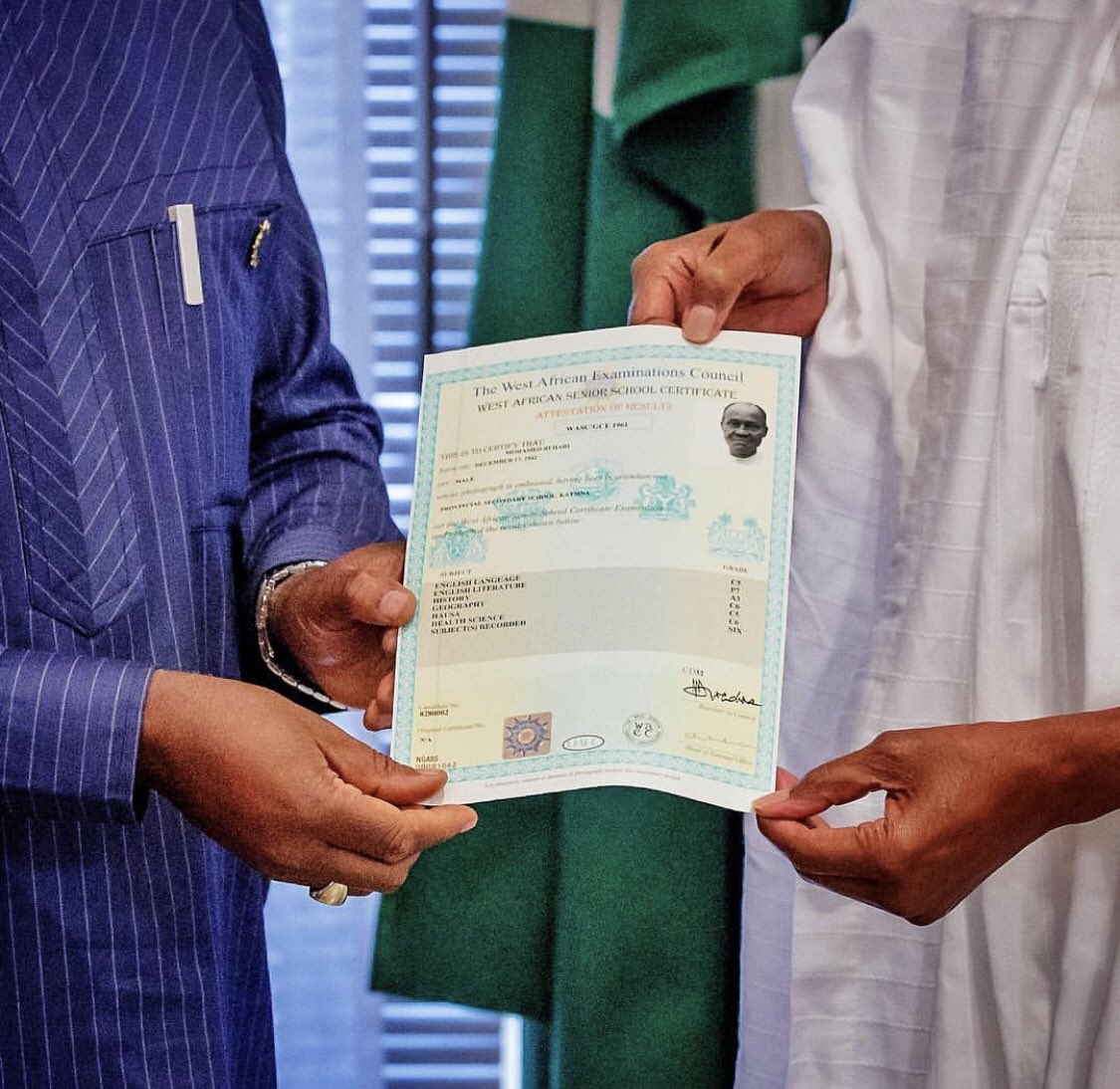President Muhamadu Buhari has always insisted that his WAEC certificate was with the Secretary of the Military Board. But, in 2015, the military, through its then director of Army Public Relations, Olajide Laleye, denied that it was in possession of the certificate and that there was no record to show that Buhari submitted such important document.
Even Government College Katsina, the secondary school where Buhari was said to have written the examinations in 1961, did not have a copy of the original certificate nor the original certificate number. The school only had a statement of result signed by the principal of the school in 2015 and a computer printout from Cambridge University.
Had WAEC been able to authenticate this computer printout from Cambridge in 2015, nobody would have been talking of Buhari’s WAEC certificate today.
Unfortunately, and because of this delay from WAEC, Buhari had to get the services of a litany of lawyers to defend himself after an Abuja-based legal practitioner, Nnamdi Nwokocha-Ahaaiwe,accused him of forging his WAEC results.
Advertisement
Now, the president has used a window opened by the West African Examination Council, for candidates who might have lost their certificates, to obtain a ‘’confirmation of result’’.
Unfortunately, this whole certificate debacle brings to the fore the nation’s poor bookkeeping culture and its consequences on the fight against corruption.
According to the World Bank, a well arranged record system provides cost effective deterrent to fraud and corruption.Little wonder, research as shown that poor record keeping in the public sector has been the major obstacle in the prosecution of corruption cases in Nigeria. Since many agencies –especially the police — still use papers and files in storing important records, disappearance of files are commonplace in many cases of corruption.
Advertisement
The problem of retrieving information in Nigeria was highlighted in a paper presented by Femi Falana (SAN). In the paper, Falana wrote: “I went to USA some time ago to get a certified copy of a judgement that was passed about 15 years ago; I got it in just 30 minutes, but in Nigeria, one may not even get it. Nigeria is still operating in the Stone Age management of record keeping; there is need to change that’’.
The courts and the military are not the only institutions without a good recording keeping culture in Nigeria.
The story of National Archives of Nigeria (NAN) is heart-wrenching. According to the Federal Ministry of Information, many of the nation’s documentary heritage have found their way outside Nigeria. NAN Zonal offices located in Ibadan, Kaduna, and Enugu built in the 60s for want of maintenance are a shadow of their former selves.
Buhari’s certificate debacle has exposed Nigerian institutions to ridicule in the international community. Nigeria institutions –especially important institutions like NAN and the military — need a good bookkeeping culture.
Advertisement
Views expressed by contributors are strictly personal and not of TheCable.
Add a comment







